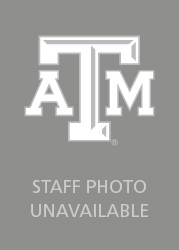Directory » MATTYNA STEPHENS
Mattyna Stephens
Clinical Assistant Professor
Mattyna L. Stephens is a Clinical Assistant Professor of Adult Education and Human Resource Development in the Department of Educational Administration and Human Resource Development in the School of Education and Human Development at Texas A&M University.
Dr. Stephens serves as a member of the Distance Education Committee. Dr. Stephens has over 20 refereed publications, three refereed book chapters, nearly 20 refereed national conference presentations, 1 article under review, and 1 article in progress. She serves on two Journal Editorial Review Boards and has served on three completed Dissertation Committees. Dr. Stephens is a member of three professional organizations: the American Association for Adult and Continuing Education, the Academy of Human Resource Development, and the National Association for the Education of Young Children. She teaches courses on applied learning principles in adult education, foundations in human resource development, leadership, organization development, methods for teaching adults, and training and development. Dr. Stephens is also the author of two children's books.
Dr. Stephens serves as a member of the Distance Education Committee. Dr. Stephens has over 20 refereed publications, three refereed book chapters, nearly 20 refereed national conference presentations, 1 article under review, and 1 article in progress. She serves on two Journal Editorial Review Boards and has served on three completed Dissertation Committees. Dr. Stephens is a member of three professional organizations: the American Association for Adult and Continuing Education, the Academy of Human Resource Development, and the National Association for the Education of Young Children. She teaches courses on applied learning principles in adult education, foundations in human resource development, leadership, organization development, methods for teaching adults, and training and development. Dr. Stephens is also the author of two children's books.
Education
Ph.D., Educational Administration and Human Resource Development, Texas A&M University
M.A., Health and Kinesiology, The Ohio State University
B.S., Health and Kinesiology, Johnson C. Smith University
COURSES TAUGHT
203-501. Foundations in Human Resource Development
This course provides an overview of the discipline and field of human resource development focused on how individuals and groups learn and interact with organizations including motivation, group dynamics, systems theory, organizational culture, learning, and change.
Fall/Spring
371-997. Applied Learning Principles
The course investigates the physiological, psychological, and psychosocial changes in the adult life span and the implications these have for adult learning capabilities. The course focuses on the identification of principles of adult learning, differences between adults and youths as learners, and a review of research on adult learning.
Fall/Spring/Summer
374-700. Organizational Development
EHRD 374 is an introductory course that examines the major components of OD. Starting with an initial historical perspective of the field, we will explore the core organizational model of entry/contracting, diagnosis, feedback, implementation, and evaluation. Working from this core model, we will examine a wide range of OD interventions used in the past and present. This course is intended to provide students the opportunity to demonstrate their analytical abilities applied to fundamental issues of organizations and leading change in a complex environment. Online participation through forum discussions and other types of electronic communication is required.
Summer
405-599. Principles and Practices of Leadership in Human Resource Development and Technology Management
This course facilitates the development of leadership capabilities and addresses the complexities, paradoxes, and challenges of leadership. Through self-assessments, readings, assignments, discussions, and assessments, students will gain an appreciation of the technical knowledge to be both effective employees, as well as effective managers of employees. In addition, students will develop professional competencies (e.g., critical thinking skills, emotional intelligence, self-reliance, integrity, accountability, time-management, cooperation, teamwork, communications, and job search skills) essential for participation in the business community.
Fall and Summer
616. Methods for Teaching Adults
This course explores the practical elements of effectively teaching adults, in its complexity and variety. Together we will pool our experiences of teaching (both as learners and as educators), reflect on those experiences, and generate projects on topics we collectively explore. We will investigate theories of teaching and teaching strategies, theories about learning and cognition, instructional design, and other related issues, and we will add methods, techniques, strategies, and resources to your teaching repertoire. By the end of this course, you should be able to:
• Identify, develop, and apply new teaching techniques and strategies suitable for adults.
• Articulate your intentions and beliefs related to adult teaching and learning.
• Apply and adapt the practices, strategies, and skills of teaching and learning prevalent in the
academic literature to your own present or future teaching context.
• Identify, develop, and apply new teaching techniques and strategies suitable for adults.
• Articulate your intentions and beliefs related to adult teaching and learning.
• Apply and adapt the practices, strategies, and skills of teaching and learning prevalent in the
academic literature to your own present or future teaching context.
SELECTED PUBLICATIONS
Highlighed Publications
Stephens, M. (Accepted). Adult learning for self-care and healing justices: Black Women living with HIV/AIDS amid a global pandemic: Voices from CBOs’ service providers. New Horizons in Adult Education and Human Resource Development. [published with student]
Stephens, M., Lowney, J., Ybarra, C., & Stephens, S. (2022). Adult learning facilitators in any setting (ALFAS), instructional designers' roles as the adult learner and educator and their perceived knowledge construction when preparing graduate faculty for teaching online: An interpretive study. New Horizons in Adult Education and Human Resource Development, 34(1), 3-15. https://doi.org/10.1002/nha3.20319 [published with student]
Book Chapters
Stephens, M. (2019). Don’t let the jumpsuit fool you: Inmate mothers reclaiming power from the inside, teaching, learning, and parenting. In D. Ford, M. Trotman-Scott, N. Walter-McZeal, & J. Young (Eds.), Gumbo for the soul II: More liberating memoirs and stories to inspire females of color. Information Age Publishing.
Stephens, M. (2018). Publishing literacy: Power, process, pitfalls, and predators. In C. Barker-Stucky, B. Conley, & M. Murphy (Eds.), Self-actualization through literacy: Read, write, become your better self (133-154). The Carnegie Writers Inc.
